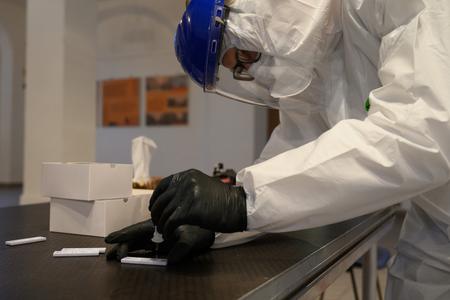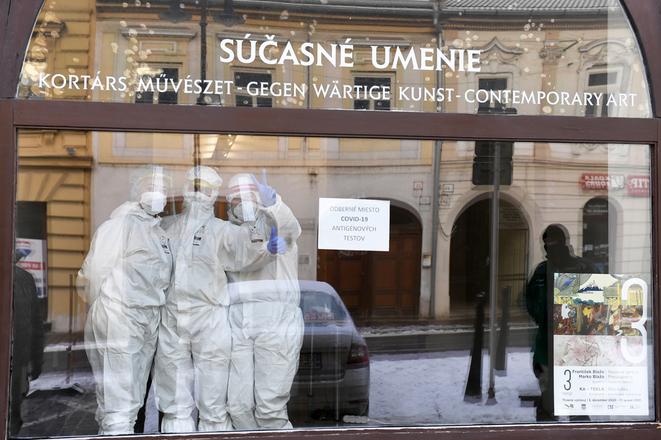A second round of nationwide testing for coronavirus is underway in Slovakia. And just like a similar operation last autumn, questions have been raised over its effectiveness as a tool to stop the spread of the coronavirus in the country.
The testing, which this time has been called ‘screening’ by the government, began on Monday, January 18.
But unlike the last country-wide testing it is being spread over nine days instead of a single weekend, and people will not be exempted from lockdown restrictions.
After January 27, under tighter post-screening restrictions, a negative test will be required for anyone travelling to or from work or taking exercise outdoors away from their home.

The Health Ministry has said it will only release the results of the testing once it has finished, but demand for tests has been huge.
Since the last mass testing, some mobile testing sites offering antigen tests – which involve taking swabs from the back of the nose and which return results in less than half an hour – have been set up in cities and towns. Some operate on a walk-in basis and others take reservations using a national central system.
But that reservation system collapsed within minutes of Prime Minister Igor Matovič announcing the screening, and once it came back online the following day, all available appointments were booked up within hours. Long waits were reported at walk-in testing centres.
Cities, towns, and villages around the country have opened temporary testing sites to try and ensure anyone wanting to get tested can do so.
Questions raised
The first round of mass testing at the end of October and beginning of November last year was heavily criticised by leading Slovak disease experts.
And when the PM tried to push through a repeat of the operation in December, many scientists, including members of the government’s own pandemic advisory team, publicly called for any further mass testing to be carried out only in areas with high infection rates, arguing it would otherwise be a waste of already stretched healthcare resources.
However, while some continue to have reservations over this screening, they see some positives in it compared to the mass testing last year.



 Rapid testing in Košice (source: TASR)
Rapid testing in Košice (source: TASR)